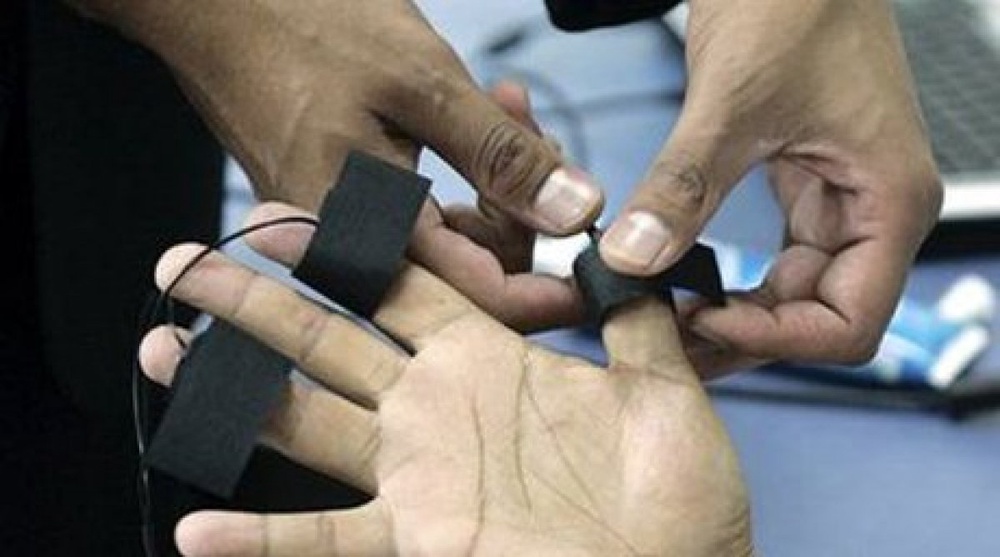
Kazakhstan is planning to use polygraphs to test potential employees of law-enforcement authorities, Tengrinews.kz reports. Majilis, the lower chamber of Kazakhstan parliament, approved the draft law On amendments to the Law on Law-Enforcement Authorities in the first reading. The draft law provides for use of the lie detector by law-enforcement authorities. The amendments were suggested by the Kazakhstan government. “Persons seeking employment with law-enforcement authorities will be obliged to pass medical certification by military-medical commissions, as well as a polygraph test to prove their fitness for the service,” the draft law states. “Practicability of the draft law is conditioned by the need for legal measures to optimize activities and improve the quality of our law-enforcement authorities' staff,” deputy Svetlana Bychkova said. Kazakhstan Interior Minister supports adoption of the law, but doubts reliability of polygraph tests. “We have agreed on the employment issue, but, to be honest, we studied the foreign countries’ experience and it is doubtful that we can rely on the results of the polygraph tests, there are some controversy issues” Kalmukhanbet Kassymov said. Chairman of the State Service Agency Alikhan Baimenov supported the use of lie detectors for employment to some public positions. “I think that use of lie detectors for employment to some public positions, not only law-enforcement, but also to positions with high corruption risks, is quite a logical step. There is no discrimination in that,” Baimenov said at a press-conference in Astana. According to head of the Agency, polygraph test is used for employment to state authorities in many countries with developed democracy. “When we were in the United States, we studied this issue very closely. They also use lie detectors for employment to some other positions,” Baimenov said. Deputy Prosecutor General of Kazakhstan Iogan Merkel told that training of polygraphologists and procurement of the lie detectors would require around 259 million tenge ($1.7 million). “When this project was prepared, it was discussed by the state budget commission and a decision was made to allocate 259 million tenge for procurement of the polygraphs. This amount also includes funds for training of the experts who can work with the polygraphs,” Merkel said at the meeting in the Majilis. “As for availability of the polygraphists, there are such experts in Kazakhstan. There is a special public union; it has been operating since 2002. It currently has over such 50 experts. Kazakhstan has special trainings and there are experts in the National Security Commission who have been working for a long time,” deputy Prosecutor General added. Meanwhile, according to him, training of officers for working with lie detector takes around 6 months and costs an average of 400 thousand tenge ($2,700). One polygraph test lasts for an average of 2 hours. It is important to make sure that the tests are performed well.





Kazakhstan is planning to use polygraphs to test potential employees of law-enforcement authorities, Tengrinews.kz reports.
Majilis, the lower chamber of Kazakhstan parliament, approved the draft law On amendments to the Law on Law-Enforcement Authorities in the first reading. The draft law provides for use of the lie detector by law-enforcement authorities. The amendments were suggested by the Kazakhstan government.
“Persons seeking employment with law-enforcement authorities will be obliged to pass medical certification by military-medical commissions, as well as a polygraph test to prove their fitness for the service,” the draft law states.
“Practicability of the draft law is conditioned by the need for legal measures to optimize activities and improve the quality of our law-enforcement authorities' staff,” deputy Svetlana Bychkova said.
Kazakhstan Interior Minister supports adoption of the law, but doubts reliability of polygraph tests.
“We have agreed on the employment issue, but, to be honest, we studied the foreign countries’ experience and it is doubtful that we can rely on the results of the polygraph tests, there are some controversy issues” Kalmukhanbet Kassymov said.
Chairman of the State Service Agency Alikhan Baimenov supported the use of lie detectors for employment to some public positions.
“I think that use of lie detectors for employment to some public positions, not only law-enforcement, but also to positions with high corruption risks, is quite a logical step. There is no discrimination in that,” Baimenov said at a press-conference in Astana.
According to head of the Agency, polygraph test is used for employment to state authorities in many countries with developed democracy.
“When we were in the United States, we studied this issue very closely. They also use lie detectors for employment to some other positions,” Baimenov said.
Deputy Prosecutor General of Kazakhstan Iogan Merkel told that training of polygraphologists and procurement of the lie detectors would require around 259 million tenge ($1.7 million).
“When this project was prepared, it was discussed by the state budget commission and a decision was made to allocate 259 million tenge for procurement of the polygraphs. This amount also includes funds for training of the experts who can work with the polygraphs,” Merkel said at the meeting in the Majilis.
“As for availability of the polygraphists, there are such experts in Kazakhstan. There is a special public union; it has been operating since 2002. It currently has over such 50 experts. Kazakhstan has special trainings and there are experts in the National Security Commission who have been working for a long time,” deputy Prosecutor General added.
Meanwhile, according to him, training of officers for working with lie detector takes around 6 months and costs an average of 400 thousand tenge ($2,700). One polygraph test lasts for an average of 2 hours. It is important to make sure that the tests are performed well.


 +7 (777) 001 44 99
+7 (777) 001 44 99















































